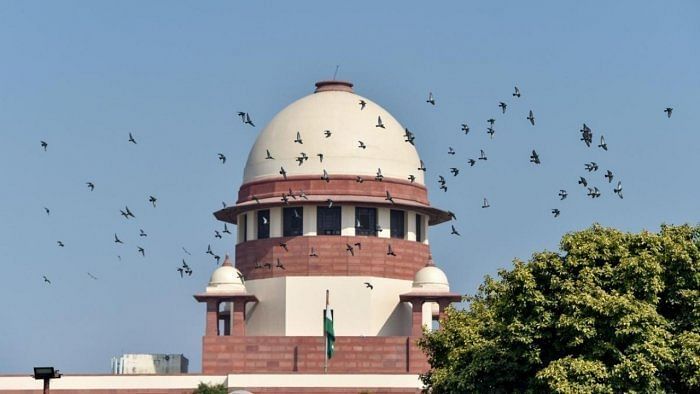
The Supreme Court on Tuesday agreed to constitute a bench to take up a batch of petitions challenging the Karnataka High Court judgement that upheld the right of educational institutions to ban wearing of hijab in Pre-University colleges of the state.
On a mentioning by a counsel, a bench presided over by Chief Justice N V Ramana asked the petitioners to wait as the bench would be constituted.
"I will constitute a bench. One of the judges is not well," the CJI said on a request by senior advocate Meenakshi Arora for listing of the cases.
The counsel said the date must be fixed for hearing as the petitions were filed in March.
"Wait. If judges had been alright, the matter would have come", the bench told her.
On July 13, advocate Prashant Bhushan mentioned the plea for urgent hearing. The CJI had then said the matter would be listed some time next week.
Earlier, the top court had refused a number of times a plea to consider the special leave petitions against the High Court's judgement urgently.
On March 24, the court had asked the petitioners not to sensationalise the issue when senior advocate Devadatt Kamat on behalf of girl students said that they would lose one academic year, if they are denied permission to wear headscarf and appear in examinations beginning since March 28.
A three-judge bench of the Karnataka High Court led by Chief Justice (since retired) Ritu Raj Awasthi, and comprising Justice Krishna S Dixit and Justice J M Khazi had on March 15 upheld the ban on wearing Hijab in classrooms for not being a part of essential religious practice in Islamic faith. It had dismissed a plea for permission to wear Hijab in classrooms, saying prescription of uniform was a reasonable restrictions.
Questioning the HC's verdict, the petitioners claimed wearing of Hijab was protected under the fundamental rights to privacy, expression and conscience guaranteed under the Constitution.
They also contended the Karnataka Education Act, 1983, and the Rules made thereunder, do not provide for any mandatory uniform to be worn by students.
They also claimed the High Court's order had created an unreasonable classification between the non-Muslim female students and the Muslim female students.
